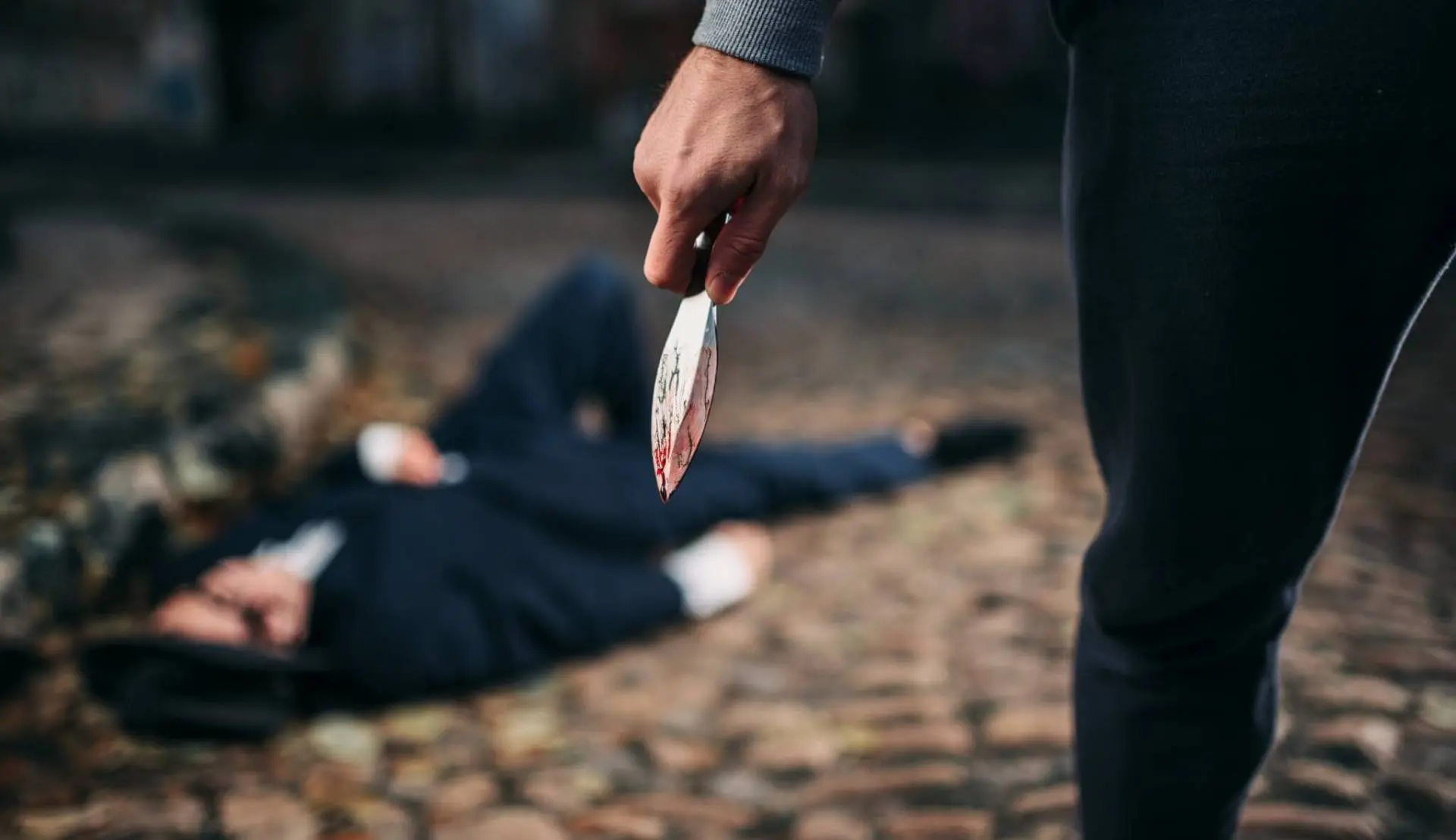Murder is a serious crime to be charged with, and there are multiple levels and ways someone could be charged. They all lead to varying outcomes, with significant consequences if convicted. Read on for what you need to know.
How Is Murder Defined in Virginia?
Murder is the crime of someone taking someone else’s life. Virginia law spells out five different degrees of murder.
Capital murder. This is the most serious degree and is a Class 1 felony. When someone kills another intentionally, deliberately, and through premeditation, it’s capital murder. That includes killing someone while kidnapping them, hiring someone else to kill someone, or during a robbery or sexual assault, among others.
First-degree murder. First-degree murder is also intentional and premeditated, including any scenario not covered by capital murder. It’s a Class 2 felony.
Second-degree murder. Second-degree murder is the charge brought when someone kills someone else, but it doesn’t fit into capital or first-degree murder. It’s also a felony.
Voluntary manslaughter. Manslaughter differs from murder in that the killing is neither intentional nor premeditated. An example would be someone who gets into a bar fight without intending to kill someone, but they do. It’s a Class 5 felony.
Involuntary manslaughter. Involuntary manslaughter happens when someone kills someone without intending to. An example is when someone drives drunk and kills another driver or pedestrian. It’s a Class 5 felony.
When Is Murder a Federal Crime?
While many murders are prosecuted in Virginia courts as state crimes because they’re covered in state laws that federal courts have no jurisdiction over, there are several situations in which murder can be tried as a federal crime rather than a state crime.
Based on the victim’s identity. If the victim was an elected or appointed federal government official (including the president, senators, representatives, and Supreme Court justices), a federal judge, a law enforcement officer, or an immediate family member of a law enforcement officer, it could be a federal crime.
Based on where the crime took place. If the murder occurs on a ship, by a hired killer who crossed state lines, or by sending poisons or explosives by mail, it will likely be a federal crime.
Based on the circumstances the murder occurred in. If the murder was done to try and influence the outcome of a federal court case, during a bank robbery, related to drugs and drug deals, or related to the rape, molestation, or sexual exploitation of children, it’s a federal crime.
How Is a Federal Crime Different than a Virginia State Crime?
There are several significant differences, and nearly all of them could lead to even worse outcomes for the person charged if they’re convicted. That’s why it’s strongly recommended that someone charged with murder as a federal crime hire an experienced criminal defense lawyer.
Harsher sentencing and consequences. Federal statutes usually have harsher sentencing laws than state statutes. The maximum punishment is much higher than for state counterparts, and federal judges have far less discretion in sentencing. They must follow strict federal guidelines when sentencing. Those guidelines frequently require additional punishments that aren’t used in state crimes.
Fewer options for plea bargains. Federal prosecutors have far less ability to negotiate plea bargains than state prosecutors.
What Defenses Can Be Used if I’m Charged with Murder as a Federal Crime?
Not all murder charges, whether federal or state, end in conviction. There are several potential defenses that your lawyer can develop for you. This is by no means a comprehensive list. Each murder case is unique.
- Airtight alibis. The key word is “airtight.” The prosecution will try to find holes in any alibi, but it could work if it is provable and holds up.
- Reasonable doubt. Crimes of murder mean the prosecutor has to prove the case beyond a shadow of a doubt. That can be much more difficult than civil cases with a lower proof threshold. There are numerous ways to approach reasonable doubt, depending on the specifics of your case.
- Misidentification. When an eyewitness says they saw someone commit the murder, there’s more than a little possibility that they may be wrong.
- The killing was an accident. This could lead to the charges being reduced to manslaughter, which is a lesser degree of murder and could have lighter consequences.
- The killing happened in self-defense. If someone believes their own life is imminently at risk if they don’t stop the other person, they can claim self-defense. It’s also possible to claim being in defense of others.
- Evidence suppression. This has variants, but it involves having evidence excluded from the case because the prosecution acquired it improperly. It also happens when the person charged isn’t read their rights when being arrested or if an illegal search was done.
- Reason of insanity. This would require more than just the word of the person charged with the murder. But if it’s possible, expert witnesses such as psychiatrists can perform evaluations to determine if insanity is a reasonable defense.
What Should I Do if I’ve Been Charged with Murder?
Contact Scott Nolan Criminal Defense as soon as possible to request a free case evaluation. Murder is an extremely serious charge, whether filed as a state or federal crime. This is not the time to go it alone. You’ll need the help of an experienced, knowledgeable criminal defense attorney.



